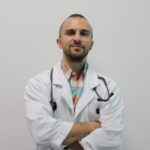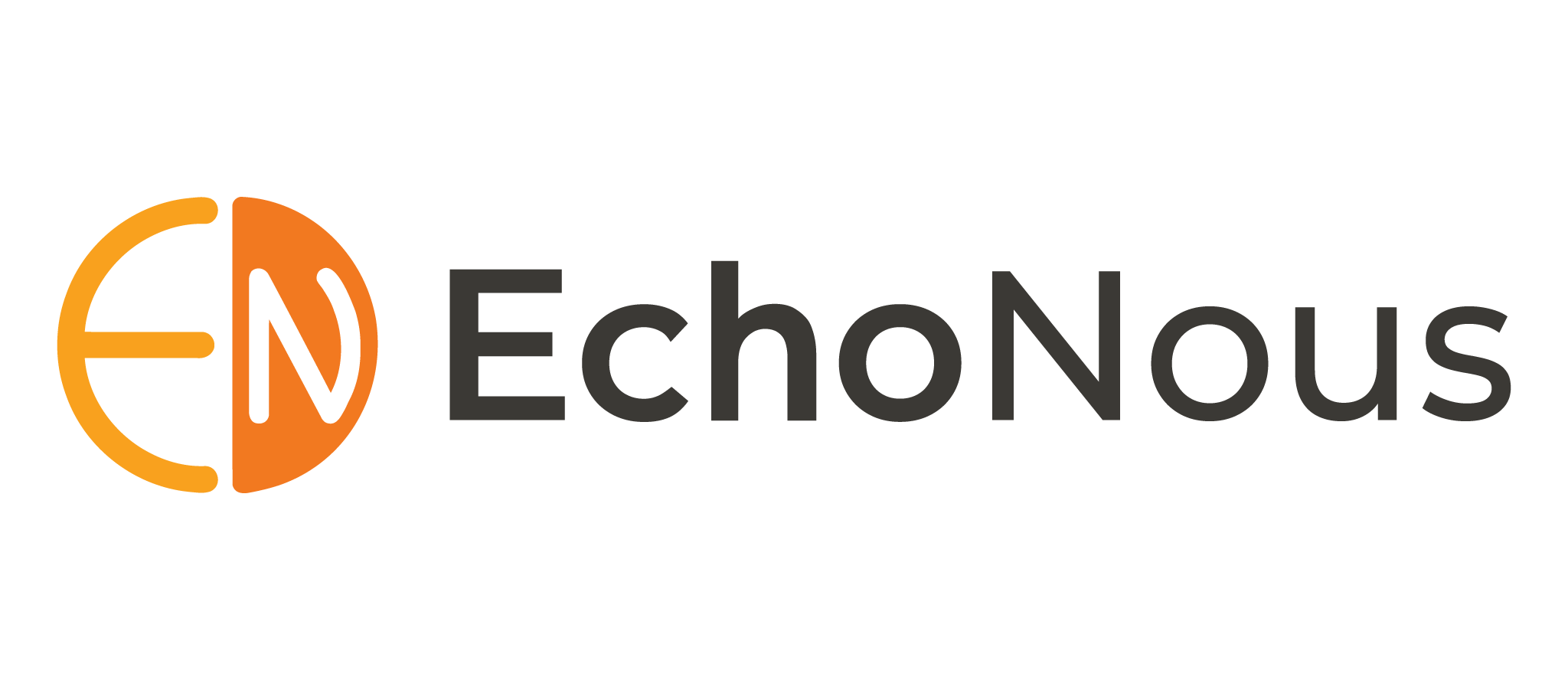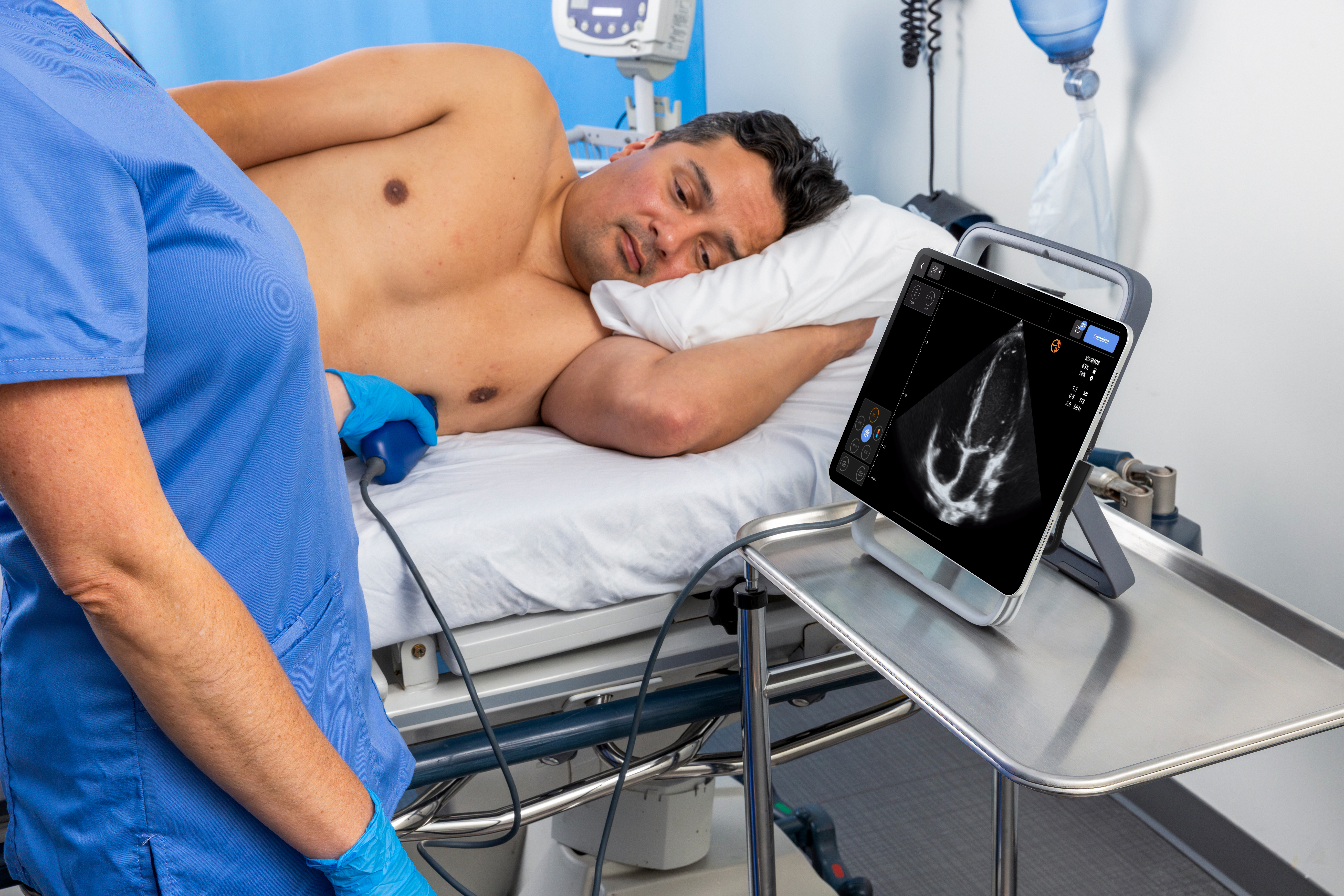POCUS Mission in East Timor:
A Lifeline for Underserved Communities
A Conversation with Dr. Gil Sequeira

Dr. Gil Sequeria
Emergency Medicine Physician
and POCUS Trainer

EchoNous Team
Dr. Gil Sequeira is an emergency physician based in Viana do Castelo, Portugal. He recently participated in a medical mission to East Timor, bringing essential point-of-care ultrasound (POCUS) services to remote areas with limited access to healthcare. The collaboration with EchoNous played a crucial role in addressing diverse medical challenges, from routine cases to emergencies, and highlights the impact of portable ultrasound technology in underserved communities. The EchoNous team had the opportunity to interview Dr. Sequeira and learn more about his experience.
[Note: Watch the video here or read the transcript that has been edited for clarity and brevity.]
Introduction
Dr. Gil Sequeira undertook a six-week medical mission in East Timor with a clear mission: to bring essential POCUS services to remote areas facing significant healthcare challenges.
His work took place outside a conventional healthcare setting in a region with inadequate roads and scarce medical facilities. In this challenging environment, Dr. Sequeira oversaw both routine medical cases and emergency medicine, including transporting patients to the hospital due to the absence of ambulances in the region. Through his work, Dr. Sequeira aimed to improve healthcare accessibility and address disparities that impact the health and well-being of communities in East Timor.
Background: Timor-Leste
In the remote corners of Timor-Leste, where the Lesser Sunda Islands meet the eastern end of the Indonesian archipelago, a community grapples with significant healthcare challenges. The nation, with a population of approximately 1.3 million, has a high fertility rate of 4.09 children born per woman (2023 est.) and a young population, with almost 40% below the age of 15.
These demographic patterns, influenced by factors such as low contraceptive use and a traditional preference for large families, contribute to pressure on government spending for social programs. Timor-Leste, a Southeast Asian nation of 12 municipalities and one special administrative region, faces persistent challenges related to population growth, poverty, and healthcare.
Despite a growing yet poorly educated working-age population and prevalent poverty, Timor-Leste’s communities remain resilient. Approximately 70% reside in rural areas, relying heavily on subsistence agriculture. Economic challenges persist, with heavy dependence on energy resources in the Timor Sea and a GDP per capita of $2,406 in 2022.
Amid these challenges, healthcare indicators reflect the struggles of the population. Maternal mortality remains high at 204 deaths per 100,000 live births (2020 est.), and the infant mortality rate is 32.9 deaths per 1,000 live births (2023 est.). Life expectancy at birth is 70.2 years (2023 est.), and healthcare professionals are scarce, with a physician density of 0.76 physicians per 1,000 population (2020). Timor-Leste faces a very high risk of major infectious diseases, including bacterial diarrhea, hepatitis A, typhoid fever, dengue fever, and malaria.
Six Weeks, “All Kinds of Patients”
EchoNous: What conditions were you working under, and what was a typical day like?
Gil Sequeira, MD: We went there for medical support, not only in that small clinic but also in the surrounding villages. So we sometimes also worked in the clinic and went around the villages. The roads are not very good – they do not have access to any medical support, no doctors. So, it’s difficult for them.
In the clinic, we saw all kinds of patients, like a health center, but we also worked in emergency medicine since [the patients] had nowhere else to go. So, if they have an emergency, they go there, and you have to take them to the hospital yourself – there are no ambulances there. So, we saw all kinds of patients, morning and afternoon.
EchoNous: How did the relationship with EchoNous come about?
Gil Sequeira, MD: I lecture in some ultrasound courses with point-of-care ultrasound (POCUS) in Portugal. We use many EchoNous ultrasound machines.
I was preparing for a medical mission in East Timor and needed a device to take with me. My company reached out to EchoNous, and they were accommodating. EchoNous lent me one of their outstanding devices which I could use during the mission.
EchoNous: What EchoNous equipment did you take?
Gil Sequeira, MD: I took a Kosmos ultrasound machine with a Torso-One probe. They don’t have access to healthcare providers and facilities, and there’s a lack of community resources in the area.
Imagine: the closest hospital is about 30 minutes by bumpy roads and over 1 1/2 hours from some villages. And they only have X-rays in that hospital—no CT scan, no ultrasound machine—so portable equipment goes everywhere; it is perfect. I took it to the clinic, the villages when we went around, and even the hospital to help there, so yes, it is perfect.
EchoNous: Would your trip have been possible without the support from EchoNous?
Gil Sequeira, MD: Did taking the ultrasound machine make a difference? Of course, it did. It was very important. I could go without it, but it wouldn’t be the same.
EchoNous: You provided valuable health care to a wide range of patients during your stay in East Timor, from assisting road accident victims to caring for a patient with tuberculosis. Was there one case that stands out in your mind that gave you particular satisfaction?
Gil Sequeira, MD: Even in minor cases, like one of the nurses in the clinic, who was pregnant—she was 30-something weeks—she had never seen the baby. So, the aim was to show her the baby. She was like, “Ooh,” pressing the ultrasound machine’s screen. “Ooh, he is complete, he has a head… he has two arms…!” It was very nice.
EchoNous: Does using point-of-care ultrasound help establish a stronger doctor/patient relationship?
Gil Sequeira, MD: POCUS is essential. Doctors are seen as disconnected from their patients. As a doctor, it makes you closer to the patient, it puts you in contact with the patient. POCUS is very important to the bond between the doctor and the patient.
EchoNous: Which of the many features of Kosmos did you find most useful?
Gil Sequeira, MD: It’s very complete for a portable device. It has everything: both [CW & PW] Dopplers, a multi-purpose probe. It can do cardiac, it can do abdominal. It’s excellent. One particular thing that Kosmos has I haven’t seen in other devices: there’s a notch on the back of the device where you can control the depth and frequency, start taking video, and pictures while holding the device. The AI for cardiac imaging is terrific.
EchoNous: Are you planning to do more volunteer medical work?
Gil Sequeira, MD: I like to volunteer. I will try to go again next year. Once you do one mission, it gets under your skin once you go one time. You’ve got to go! It’s very overwhelming. You make a difference. It’s a very uneven world, so you try to balance it a little bit more if you can. So yes, definitely.
To learn more about Kosmos, contact us today!



